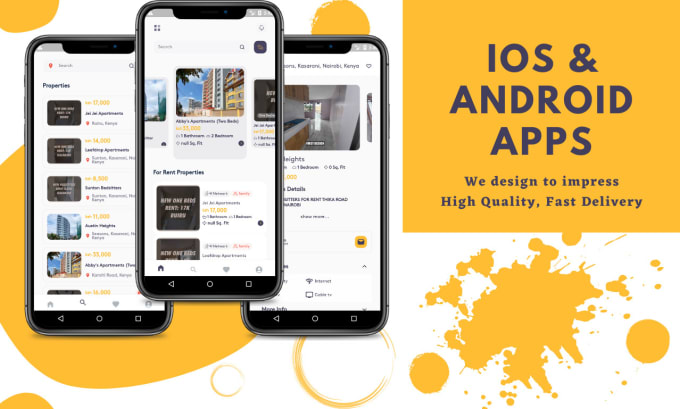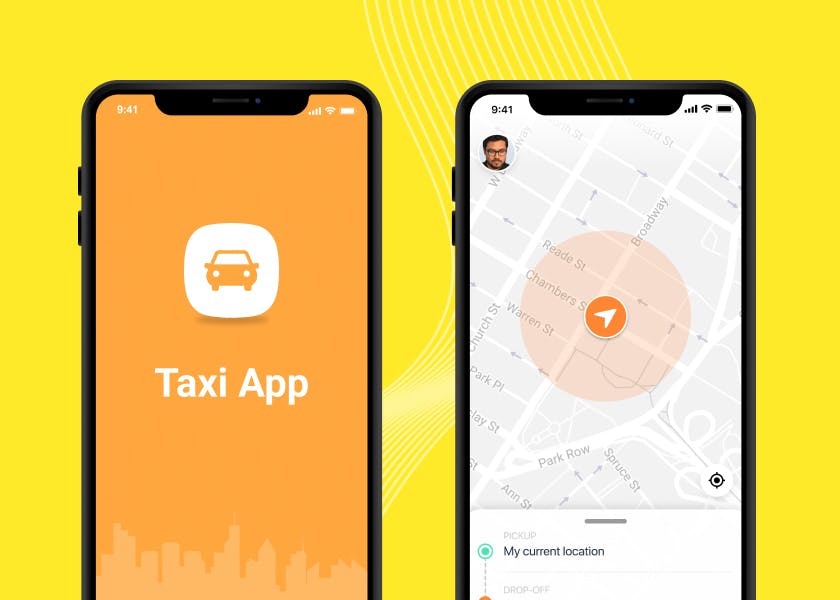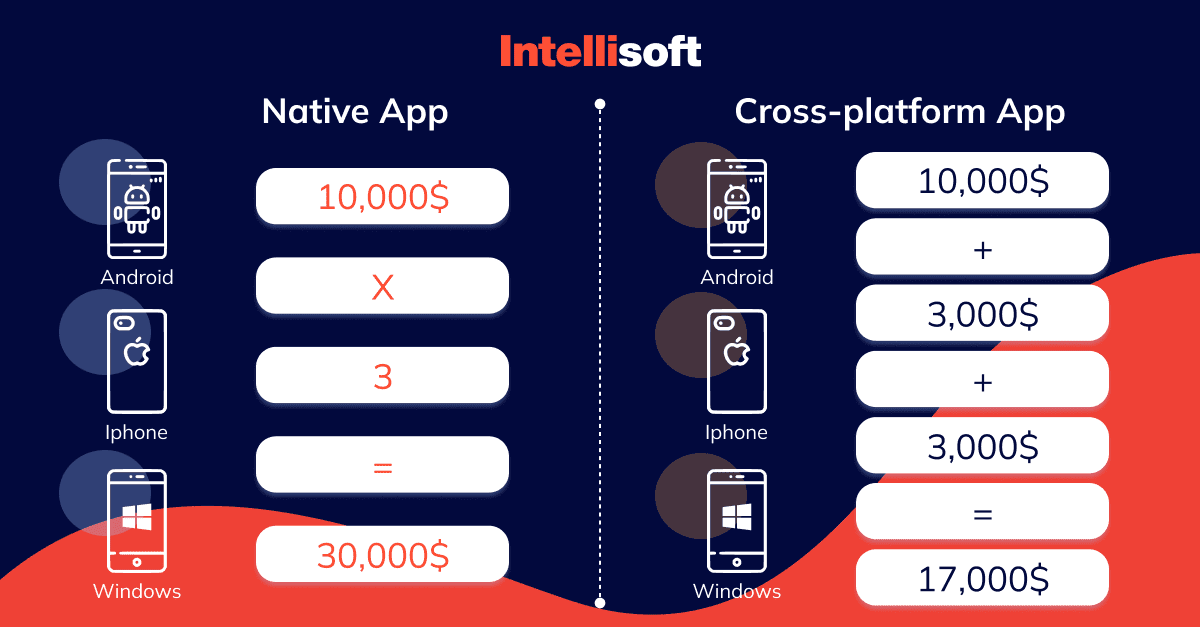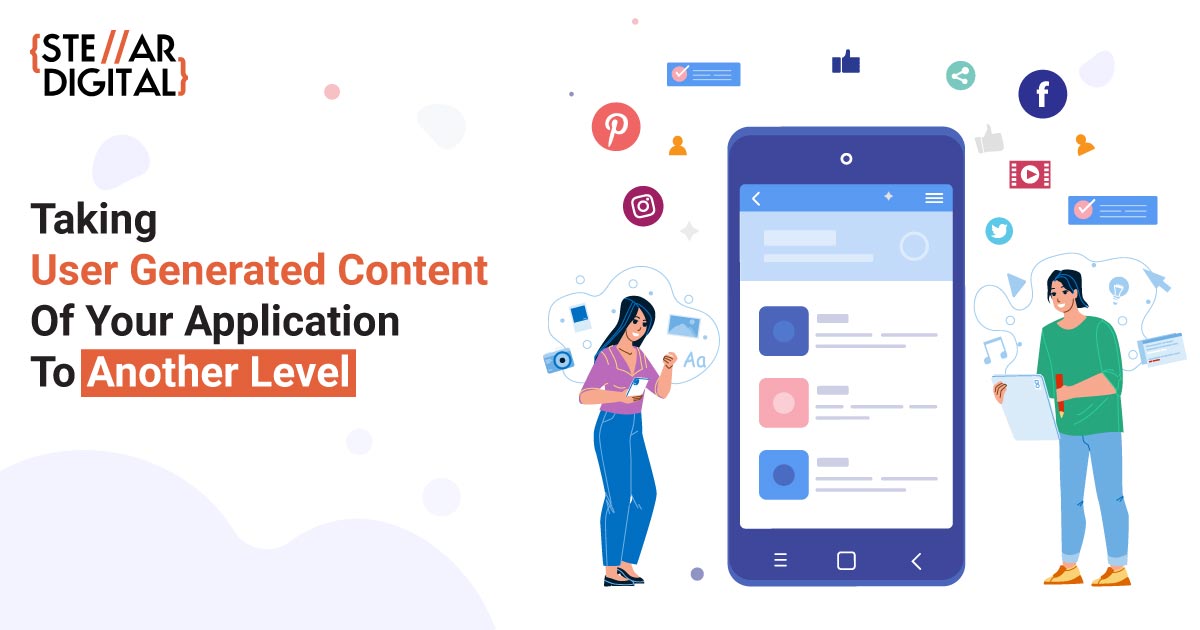Creating a successful mobile app involves incorporating features that cater to users' needs while providing a seamless and engaging experience.
When it comes to creating a successful mobile app, there are numerous features that can contribute to its success. Here are 30 key mobile app features that are commonly found in successful apps:
1. User Registration
Allow users to create accounts and log in to personalize their experience. Make the onboarding process smooth and hassle-free for new users.
2. Intuitive User Interface (UI)
Design an intuitive and user-friendly interface for easy navigation. You should design a clean, intuitive interface that is easy to navigate for the users.
3. Social Media Integration
Enable users to share app content on social media platforms. Allow users to create personalized profiles with relevant information. Integrate with popular third-party services to enhance functionality (e.g., Google Maps, payment gateways).
4. Push Notifications
Send timely notifications to keep users engaged and informed. Implement push notifications to keep users engaged and informed about updates, promotions, or relevant content.
5. In-App Purchases
Offer users the ability to make purchases within the app. Enable users to make secure payments within the app.
6. Offline Mode
Provide some features that can be accessed offline for users without an internet connection. Enable users to save data or content for offline viewing.
Provide limited functionality or access to content when users are offline.
7. Search Functionality
Incorporate a robust search feature to help users find what they're looking for quickly.
Allow users to search and find specific content or features within the app.
8. Personalization
Offer customization options to tailor the app to individual preferences. Allow users to customize their experience based on preferences.
9. Payment Integration
Integrate secure payment gateways for seamless transactions. Offer in-app purchases for additional features or content.
10. Ratings and Reviews
Enable users to rate and review the app or its content. Implement a rating and review system to gather feedback and improve user experience.
11. Analytics and Reporting
Collect data on app usage and user behavior for analysis and improvement. Incorporate analytics tools to track user behavior and app performance.
12. Social Sharing
Allow users to share app content or achievements on social media. Enable users to share content or login via their social media accounts. You should allow users to easily share content from the app on social media platforms.
13. Location-Based Services
Use device location to provide personalized content or services. Utilize location-based services to provide relevant content or features based on the user's location.
14. Feedback and Support
You should provide channels for users to offer feedback and seek support.
Offer a feedback mechanism and customer support to address user queries or issues.
Conducting market research and understanding user needs and preferences can help you prioritize which features are most important for your app's success.
15. Multi-Language Support
Provide localization options to cater to a global audience. Additionally, support various types of multimedia content such as images, videos, and audio.
16. Gamification
Introduce gamification elements to increase user engagement and retention.
Incorporate game-like elements, such as rewards or achievements, to enhance user engagement.
17. Offline Data Storage
Sync data seamlessly across devices when the internet connection is restored.
Allow users to store data locally for quick access and offline use. Utilize device features such as camera, GPS, or accelerometer to enhance app functionality.
18. QR Code Scanner
Provide PWA support for users who prefer to access the app via a web browser.
Enable users to scan QR codes for various purposes, such as promotions or authentication.
19. Social Login
Allow users to sign in or register using their social media accounts for convenience.
20. Cross-Platform Compatibility
Ensure the app is compatible with multiple operating systems (e.g., iOS and Android). You should ensure that the app is compatible with multiple platforms (iOS, Android, etc.).
21. Feedback and Rating System
Provide a feedback mechanism for users to share their opinions and rate the app.
22. Real-time Chat or Messaging
Facilitate communication between users within the app.
Enable users to communicate with each other or with customer support in real time.
23. Video and Audio Streaming
Support the streaming of video or audio content within the app.
The specific features required for your mobile app may vary depending on its purpose, target audience, and industry.
24. Augmented Reality (AR) or Virtual Reality (VR) Integration
Incorporate AR or VR technology for immersive experiences (if applicable).
You should incorporate AR or VR technology for interactive experiences.
25. Integration with External APIs
Connect the app with external services or APIs to enhance functionality. Keep the app up-to-date with regular updates, bug fixes, and new features.
26. User-generated Content
Foster a sense of community among users through forums, groups, or discussion boards.
Allow users to create and share their own content within the app.
27. Deep Linking
Enable deep linking to specific app screens or content from external sources. Optimize the app's metadata and keywords to improve its visibility in app stores.
28. Data Syncing Across Devices
Sync user data and preferences across multiple devices for a seamless experience.
29. Voice Recognition
Incorporate voice recognition for hands-free interaction within the app. Ensure that the app is accessible to users with disabilities by incorporating accessibility features.
30. Security Measures
Implement robust security measures, such as encryption and secure authentication, to protect user data. You should implement robust security measures to protect user data and transactions.
Other Factors That Contribute To The Success of Mobile App
1. Unique Value Proposition
Your app should offer a unique and compelling value proposition that sets it apart from competitors. It should solve a problem or fulfill a need for users in a way that is different or better than existing solutions.
2. User Experience (UX) Design
A well-designed and intuitive user experience is crucial for app success. The app should be visually appealing, easy to navigate, and provide a seamless and enjoyable user experience.
3. Performance and Speed
Users expect apps to be fast and responsive. Optimizing the app's performance, minimizing loading times, and reducing crashes or errors are essential for retaining users.
4. App Store Optimization (ASO)
Optimizing your app's listing in app stores, including using relevant keywords, attractive visuals, and compelling descriptions, can help improve discoverability and increase organic downloads.
5. Marketing and Promotion
A robust marketing and promotion strategy is crucial for gaining visibility and attracting users to your app. This can include social media marketing, content marketing, influencer partnerships, app store advertising, and other promotional activities.
6. User Feedback and Iterative Improvements
Actively seeking and incorporating user feedback is vital for app success. Regularly updating and improving the app based on user feedback helps enhance user satisfaction and loyalty.
7. Monetization Strategy
If your app is intended to generate revenue, having a well-thought-out monetization strategy is important. This could include in-app purchases, subscriptions, advertisements, or other revenue-generating models.
8. App Performance Analytics
Tracking and analyzing app performance metrics, user behavior, and engagement data can provide valuable insights to optimize the app, identify issues, and make data-driven decisions.
9. App Store Ratings and Reviews
Positive ratings and reviews can significantly influence app downloads and user perception. Encouraging satisfied users to leave reviews and promptly addressing negative feedback can help build credibility and trust.
10. Continuous Innovation
Staying abreast of the latest technology trends and continuously innovating your app by adding new features, improving existing ones, and adapting to user needs and market changes is crucial for long-term success.
While these factors are significant, success can also depend on market conditions, competition, timing, and other external factors. Building a successful app requires a comprehensive approach that combines a solid product, effective marketing, and a focus on user satisfaction.
















0 Comments